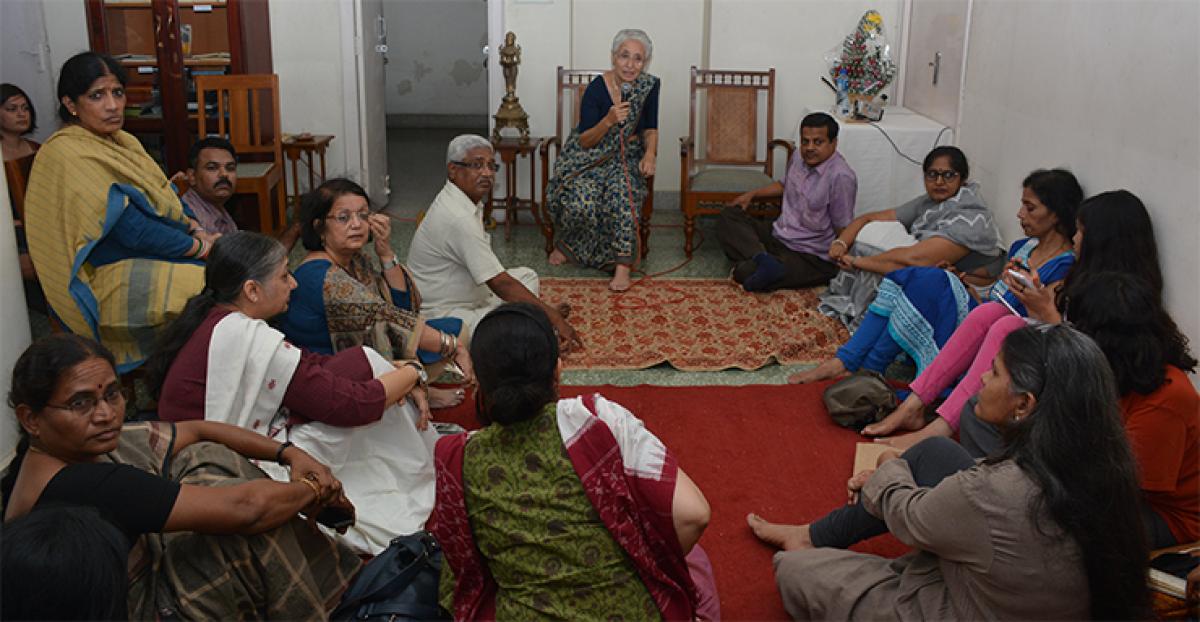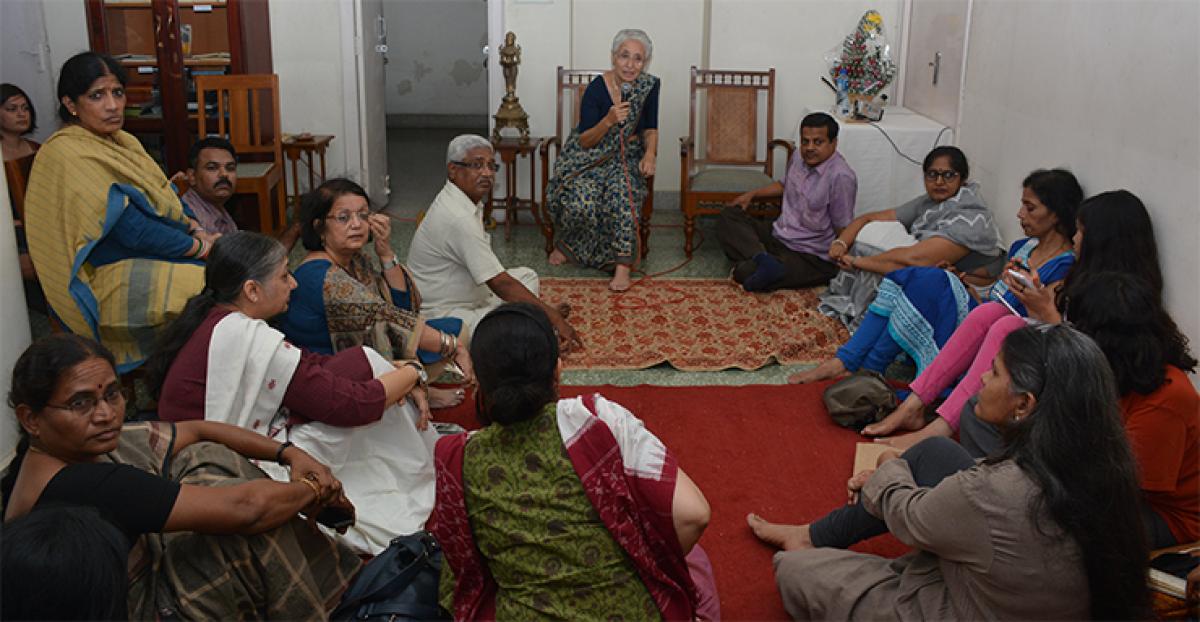Live
- A Guide to Temperature and Humidity Standards in Data Center Server Rooms
- Gadwal collector briefs on details of voters
- Jupally Krishna Rao takes part in Alampur rallu
- Bharath Prasad files 3rd Nomination
- Baisakh Month: A Time of Auspicious Beginnings and Sacred Festivals
- Oust BJD govt for overall development, says Shah
- Unveiling the Hidden Gems: Surprising Health Benefits of Garlic Peels
- Overcoming Sleep Struggles: A Comprehensive Guide to a Restful Night
- RTC bus hit the auto
- MLA Kuchukula Rajesh Reddy participated in the Birappa festival
Just In
Researchers press for alternate technology for BT Cotton


Researchers are vouching for revival of indigenous cotton by adopting novel technologies for spinning. Speaking at a seminar titled ‘Malkha: Birth of a New Fabric’, at Jiddu Krishnamurti Centre, Punjagutta, Uzramma, founder of Dastkar Andhra, which champions for marketing of hand woven cotton fabrics and the ‘Malkha’ initiative, highlighted the current status of the cotton textile industry in her talk.
Researchers are vouching for revival of indigenous cotton by adopting novel technologies for spinning. Speaking at a seminar titled ‘Malkha: Birth of a New Fabric’, at Jiddu Krishnamurti Centre, Punjagutta, Uzramma, founder of Dastkar Andhra, which champions for marketing of hand-woven cotton fabrics and the ‘Malkha’ initiative, highlighted the current status of the cotton textile industry in her talk.

She discussed on how farmers had to abandon the desi varieties of cotton to accommodate the ‘machine-friendly’ American BT cotton, a genetically modified variety sold by the American agrochemical company, Monsanto. Speaking on the introduction of technology to the industry, Uzramma says, “The technology we use for yarn spinning is not related to what needs to be used.
We need to develop a new kind of technology that will enable us to grow cotton that is not as high-risk as BT cotton.” She adds that desi seeds can be multiplied, however, she wonders if the present machinery is suitable for it. “American cotton is more prone to pests, yet, because of the machines used, farmers are forced into debts in order to afford the BT cotton seeds each year.
The whole supply chain needs to be changed,” she adds. Desi varieties of cotton were traditionally grown interspersed with legumes so that it doesn’t defeat the soil. “However, growing American cotton is not feasible for India,” Uzramma states. Uzramma had recently written an open letter to the Prime Minister regarding her opinion on the Handloom Day observed on August 7.
Uzramma opines, “In view of the environmental changes, it should be noted that hand-weaving creates a very low carbon footprint and is thus eco-friendly. Further, cutting down the budget does not help.” The letter can be accessed on the Malkha India Facebook page.
Textile trade, farming and weaving were some of the topics touched upon at the talk that was attended by people of IT industry, NIFT students and the organic farming communities. The event was part of the efforts of Jiddu Krishnamurti Centre that is organising a series of monthly talks on the handloom sector accompanied with an organic foods and a handloom bazaar.
By:Elita Enoch

© 2024 Hyderabad Media House Limited/The Hans India. All rights reserved. Powered by hocalwire.com






